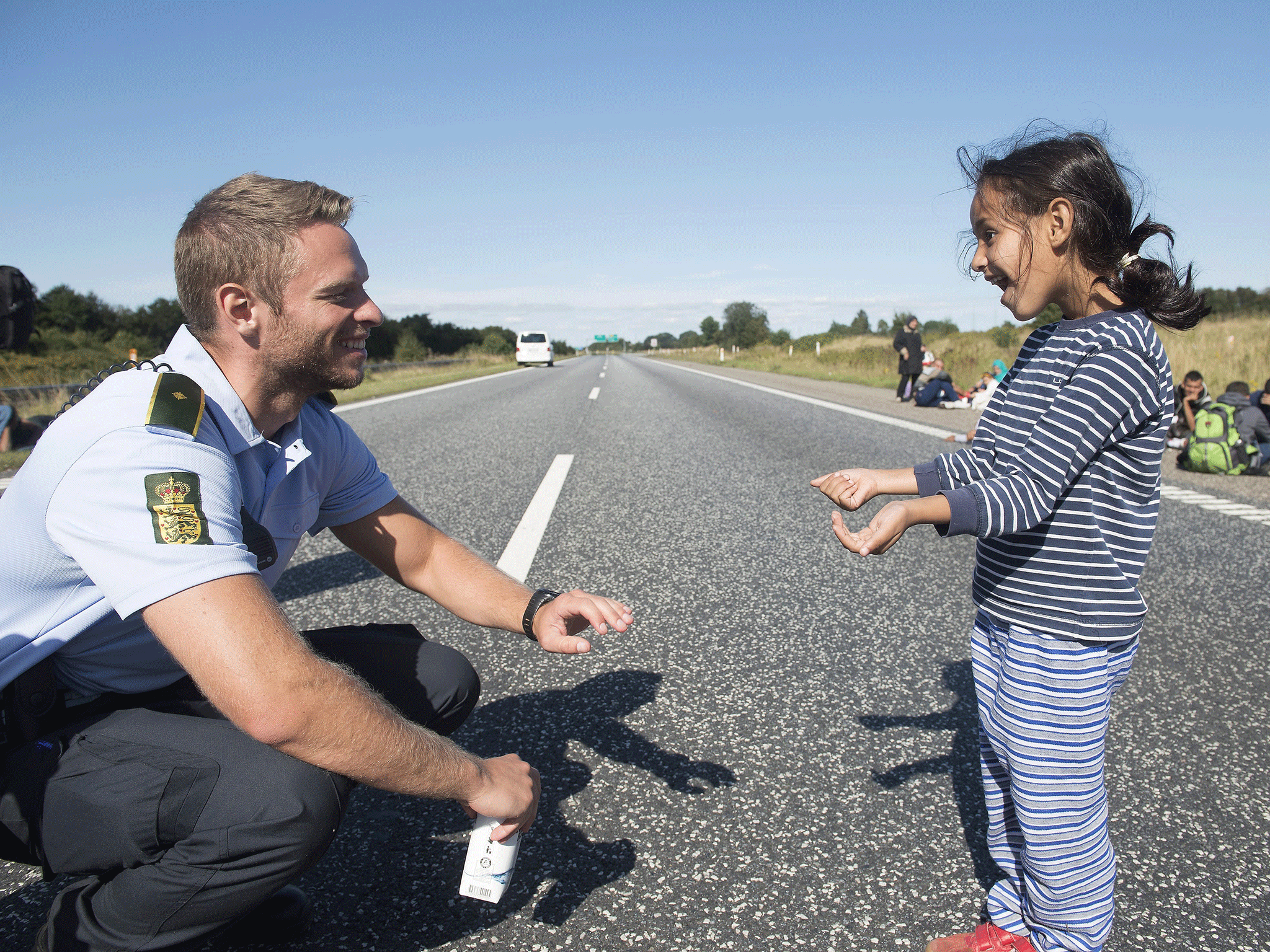Denmark has been misrepresented – we take better care of refugees than most countries on the planet
Our government is simply catering to The Danish Peoples Party – Denmark's version of Ukip – who currently set the populist agenda

“It’s offensive to compare us to the Nazis!” reads The Guardians’ speech bubble attached to the Danish PM as he is depicted wearing a brown Nazi uniform, complete with armband, while he inspects the arse of a pig.
The satire drawing was in response to the bill passed this week in Danish Parliament allowing the police to seize refugees’ assets upon arrival in Denmark. A fair satirical take on the news? Perhaps. What has been widely reported is that the police will now seize all assets, not just monetary ones, but also jewellery, golden teeth and whatever else they can get their hands on. The legislation has even been nicknamed the “jewellery bill” by some quarters of the media.
This, however, is misleading. The government have chosen not to include jewellery and assets containing emotional value, and it is important to note that this is not part of the bill.
That being said, what the bill does contain is the clause that any assets valued above 10,000 DKK (£1000) will be seized. In addition to this the period before the asylum seeker can achieve family reunification has been raised from one to three years. Both of these policies deserve attention.
First, seizure of assets has been put in place because Denmark has one of the world's best care-taking systems for refugees, which reflects our Scandinavian welfare model. We spend around 200,000 DKK every year on each refugee. That is the second highest in the world right after Sweden. Thus we justify taking refugees’ assets as a sort of hotel fee.
Personally, I think it is inhumane for one of the richest countries in the world to take pocket money from people who have carried everything they own (that’s after the traffickers have taken their cut) 4,000 kilometres across continents. At the end of the day, it is yet unclear how these assets should be handled and the policy is more symbolic than anything else – a deterrent to all extents and purposes.
The second policy is potentially much more damaging, reflected in its violation of the European Convention on Human Rights. It mirrors a concern that Denmark will be too popular for refugees because of the comparatively high amount of welfare they receive. Thus we’re basically telling them “if you come here, we’ll take good care of you, but your wife and children that you left in a war torn country you’re gonna have to see through a Skype connection for the next 36 months, alright?”
France have previously been convicted at the European Court of Human Rights for taking longer than 12 months to process family reunification, which shows exactly how this bill violates the ECHR rules.
What our government has sorely missed is that refugees fleeing war do not necessarily have access to comprehensive information on what country to target in order to maximise their benefits. Many or most, in fact, will have little interest anyway. Better, surely, to assume that they want to live and contribute in any way they can to the societies that open their arms and give them the shelter they so desperately need.
Does all of this justify an elegant Nazi comparison? No, not in my opinion, but it does display Denmark as a greedy country lacking basic human empathy. Is this image reflected on the streets of Copenhagen? Are people treating refugees, immigrants and Muslims like second tier citizens? No.
While the refugee-sceptical Danes have remained passive and refrained from protesting on the street like Pegida in Dresden, a large proportion of Danes who welcome refugees have organised themselves in multiple welcome committees, determined to help and integrate those who have come.
Danish industry giants such as Novo Nordisk have openly spoken against the new policies, as well as the Confederation of Danish Industry. Our government is simply catering to The Danish Peoples Party, a far-right populist party, which holds the political balance and keeps the government from having to resign. What is far more worrying is the fact that the Danish Peoples Party has managed to set a populist agenda (not unlike Mr Trump’s) and therefore drawn the governing liberal party Venstre and opposition leaders of the Social Democratic Party into a race-to-the-bottom of hostile, inhumane and narrow-minded policy-making. At the end of the day, very few things should justify a Nazi-comparison, with all atrocities taken into account. But the populist right-wing message of fear and self-centrism, and the evaporatiom of liberal ideals in the political centre – now spreading across Denmark and the rest of Europe (including the UK) – deserves all the opposition we can mobilize.
Join our commenting forum
Join thought-provoking conversations, follow other Independent readers and see their replies
Comments